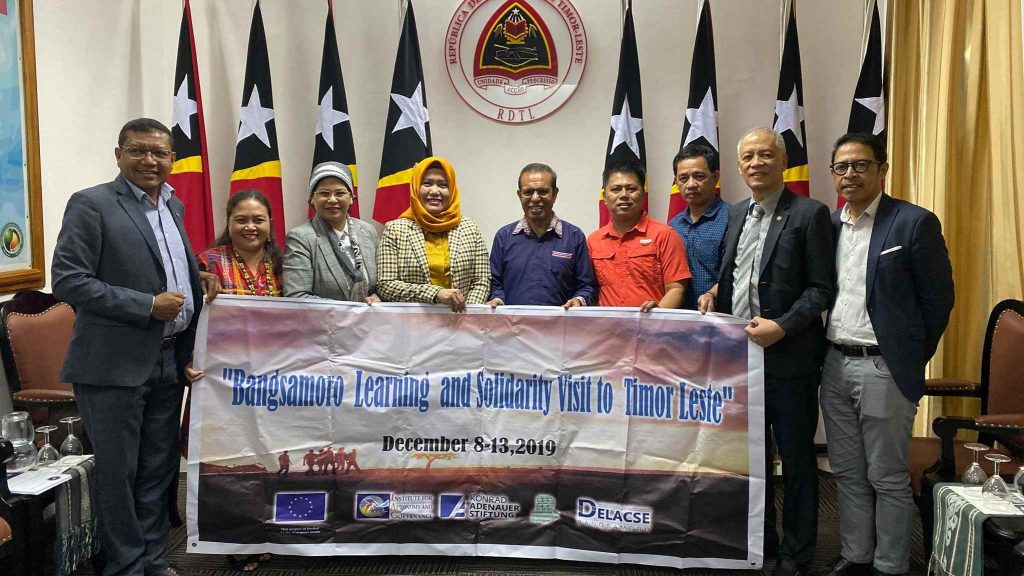
The Initiatives for International Dialogue (IID) is currently on a learning mission to Timor Leste (East Timor), bringing a contingent of seven (7) delegates coming from the Bangsamoro Autonomous Region in Muslim Mindanao (BARMM). Entitled as the “Bangsamoro Learning and Solidarity Visit to Timor Leste”, this learning mission formally kicked off yesterday and will culminate this Friday. IID, which has been at the forefront in leading a solidarity movement in support of Timor Leste’s Independence, still continues to remain as a friend and partner of the Timorese people, its civil society, government and the main political parties that have emerged since its Independence in 2002. And in 2015, IID, along with its allied solidarity networks, was conferred the highest civilian award of the country—the Order of Timor Leste during its restoration of independence celebration. The g7+ Secretariat was tasked initially by its Eminent Person and Timor Leste’s first President Xanana Gusmao to partner with IID for this learning exchange.
The delegation is represented by two (2) Members of the Bangsamoro Parliament, the United Bangsamoro Justice Party (UBJP), an indigenous woman leader and former commissioner of the Bangsamoro Transition Commission (BTC), civil society representatives, and Gus Miclat, the Executive Director of IID leading the study visit. This is done in coordination with the project consortium under the “Democratic Leadership and Active Civil Society Empowerment in Bangsamoro” (DELACSE Bangsamoro Phase 2) along with the Institute for Autonomy and Governance (IAG) and Konrad Adenauer Stiftung (KAS) with support from the European Mission. In fact, joining the contingent is Dr Stephan Jost, the Philippines Country Manager of the KAS.
This learning and solidarity visit is intended to provide an avenue for mutual learning and solidarity between the Bangsamoro and Timorese people which has already been forged many years ago. The itinerary program will feature the following areas of learning: 1) Study of Political Party Transformation, 2) Analysis of Transitional Justice and Post Conflict Peacebuilding and Development Challenges, 3) Role of Civil Society 4) Engagement with financial institutions, 5) Interaction with veterans and finally 6) Exchanges with parliamentarians.
A crucial takeaway for the mission delegates is to learn both good practices and pitfalls as Timor grappled with state-building through the years while remaining steadfast in its post-conflict peacebuilding national strategy. The solidarity contingent hopefully will learn from these key experiences: transformation of the Timorese resistance fronts and other political parties emerging from the liberation struggle, transitional justice process, role and impact of the presence of international financial institutions in a post-conflict peacebuilding and development context, and the role of civil society during the resistance and in the current political context. Since this is a mutual learning study, the Bangsamoro contingent will also share their own respective unique experiences in asserting its right to self-determination, engaging the peace process, realizing regional autonomy, and dealing with security and civilian protection issues with the end view of enriching the people to people, “south-south” solidarity discourse in the region.
[The learning exchange salvoed with a formal welcome and orientation by the key organizers g7+ Secretariat – led by Dr Helder da Costa (Secretary General) – and the Chega! Office (Transitional Justice center), courtesy meeting with Ambassador and Consul of the Philippines in Timor Leste, and capped by the welcome dinner and exchange with Dr. Ramos Horta, former President, Prime Minister of Timor Leste and a Nobel Peace Prize recipient]

Recent Comments